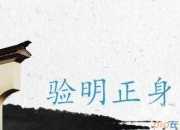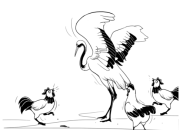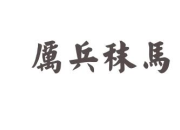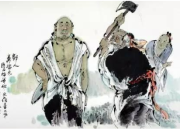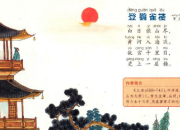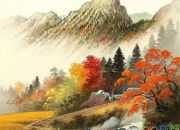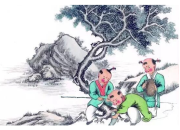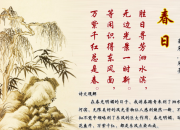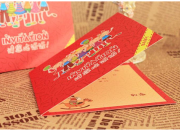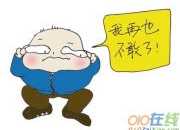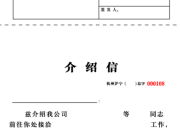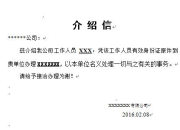清明节的故事100字英文
时间:2021-08-31有关写清明节的故事,下面就是几篇100字英文的,欢迎大家阅读与了解。

清明节的故事100字英文一
Its Chinese name"qingming" literally means "clear brightness"
In this hoilday, first,I spend a lot of time on my homework and do many useful exercise .Second,I often help my parents do some housework.
On wednesday, It was very windy ,so,I went to fly the kites with my friends in the park. The wind blew hard and our kite flew very high and very well. The wind blew hard and our kite flew very high and very well.In this day,we had a good time!
清明节的故事100字英文二
Last Qingming Festival,i return home to worship my grandfather.Qingming Festival is a folk Festival.In the past,the Qingming Festival was called "Arbor Day". But Today, Chinese visit their family graves to tend to any underbrush that has grown. Weeds are pulled, and dirt swept away, and the family will set out offerings of food and spirit money. Unlike the sacrifices at a family's home altar, the offerings at the tomb usually consist of dry, bland food. One theory is that since any number of ghosts rome around a grave area, the less appealing food will be consumed by the ancestors, and not be plundered by strangers.
With the passing of time, this celebration of life became a day to the honor past ancestors. Following folk religion, the Chinese believed that the spirits of deceased ancestors looked after the family. Sacrifices of food and spirit money could keep them happy, and the family would prosper through good harvests and more children.
清明节的故事100字英文三
The Qingming (Pure Brightness) Festival is one of the 24 seasonal division points in China,falling on April 4-6 each year.After the festival,the temperature will rise up and rainfall increases.It is the high time for spring plowing and sowing.But the Qingming Festival is not only a seasonal point to guide farm work,it is more a festival of commemoration.
The Qingming Festival sees a combination of sadness and happiness.
This is the most important day of sacrifice.Both the Han and minority ethnic groups at this time offer sacrifices to their ancestors and sweep the tombs of the diseased.Also,they will not cook on this day and only cold food is served.
The Hanshi (Cold Food) Festival was usually one day before the Qingming Festival.As our ancestors often extended the day to the Qingming,they were later combined.
On each Qingming Festival,all cemeteries are crowded with people who came to sweep tombs and offer sacrifices.Traffic on the way to the cemeteries becomes extremely jammed.The customs have been greatly simplified today.After slightly sweeping the tombs,people offer food,flowers and favorites of the dead,then burn incense and paper money and bow before the memorial tablet.
清明节的故事100字英文四
The annual Tomb-sweeping day has been a tradition for a long time,people will go back to their home town no matter were they are at,because of Chiese cultures great influence,people believe that if the spirts of their ancestors are happy and peacful in heaven,they will protect and give influence to their descendant like,wealth,health and a happy family,so a really basic way of making your ancestors happy is to clean their tomb,burn some money to them and remember them.
关于清明节的知识点汇总
清明节,又称扫坟节、鬼节、冥节,与七月十五中元节及十月十五下元节合称三冥节,都与祭祀鬼神有关。
清明节,又叫踏青节,按阳历来说,它是在每年的4月4日至6日之间,正是春光明媚草木吐绿的时节,也正是人们春游(古代叫踏青)的好时候,所以古人有清明踏青,并开展一系列体育活动的习俗。 清明节古时也叫三月节,已有XX多年历史。
公历四月五日前后为清明节,是二十四节气之一。在二十四个节气中,既是节气又是节日的只有清明。我国古代将清明分为三候:“一候桐始华;二候田鼠化为鹌;三候虹始见。”意即在这个时节先是白桐花开放,接着喜阴的田鼠不见了,全回到了地下的洞中,然后是雨后的天空可以见到彩虹了。
由于二十四节气比较客观地反映了一年四季气温、降雨、物候等方面的变化,所以古代劳动人民用它安排农事活动。《淮南子·天文训》云:“春分后十五日,斗指乙,则清明风至。”按《岁时百问》的说法:“万物生长此时,皆清洁而明净。故谓之清明。”清明一到,气温升高,雨量增多,正是春耕春种的大好时节。故有“清明前后,点瓜种豆”、“植树造林,莫过清明”的农言。可见这个节气与农业生产有着密切的关系。
但是,清明作为节日,与纯粹的节气又有所不同。节气是我国物候变化、时令顺序的标志,而节日则包含着一定的风俗活动和某种纪念意义。清明节是我国传统节日,也是最重要的祭祀节日,是祭祖和扫墓的日子。扫墓俗称上坟,祭祀死者的一种活动。汉族和一些少数民族大多都是在清明节扫墓。按照旧的习俗,扫墓时,人们要携带酒食果品、纸钱等物品到墓地,将食物供祭在亲人墓前,再将纸钱焚化,为坟墓培上新土,折几枝嫩绿的新枝插在坟上,然后叩头行礼祭拜,最后吃掉酒食回家。唐代诗人杜牧的诗《清明》:“清明时节雨纷纷,路上行人欲断魂。借问酒家何处有?牧童遥指杏花村。”写出了清明节的特殊气氛。 直到今天,清明节祭拜祖先,悼念已逝的亲人的习俗仍很盛行。清明节是我国民间重要的传统节日,是重要的“八节”(上元、清明、立夏、端午、中元、中秋、冬至和除夕)之一。一般是在公历的四月五号,但其节期很长,有十日前八日后及十日前十日后两种说法,这近二十天内均属清明节。
清明节的起源,据传始于古代帝王将相“墓祭”之礼,后来民间亦相仿效,于此日祭祖扫墓,历代沿袭而成为中华民族一种固定的风俗。
要谈清明节,须从古代一个非常有名的,现在已失传的节日——寒食节说起。
寒食节,又称熟食节、禁烟节,冷节。它的日期,是距冬至一百零五日,也就是距清明不过一天或两天。这个节日的主要节俗就是禁火,不许生火煮食,只能吃备好的熟食、冷食,故而得名。
寒食节相传是源于春秋时代的晋国,是为了纪念晋国公子的臣子介子推。晋国公子重耳,流亡外国19年,介子推护驾跟随,立下大功,重耳返国即位,即晋文公。介子推便背着老母,躲入绵山。晋文公前往寻找,却怎么也找不到。于是他放火烧山,想把介于推逼出来。不料介子推却和母亲抱着一株大树,宁愿烧死,也不出山。晋文公伤心地下令把绵山改称介山(即山西介休县境内的介山),又下令把介子推被烧死的那一天定为寒食节,以后年年岁岁,每逢寒食节都要禁止生火,吃冷饭,以示追怀之意。
其实,寒食节的真正起源,是源于古代的钻木、求新火之制。古人因季节不同,用不同的树木钻火,有改季改火之俗。而每次改火之后,就要换取新火。新火未至,就禁止人们生火。这是当时的`一件大事。《周礼·秋官·司煊氏》:“中春以木铎修火禁于国中。”可见当时是摇着木锋,在街上走,下令禁火。这司煊氏,也就是专管取火的小官。在禁火之时,人们就准备一些冷食,以供食用,这样慢慢就成了固定的风俗了。以后,才与介子推的传说相联系,成了寒食节,日期长达一个月。这毕竟不利于健康,以后便缩短日期,从七天、三天逐渐改为一天,唐之后便融合在清明节中了。
寒食节习俗,有上坟、效游、斗鸡子、荡秋千、打毯、牵钩(拔河)等。其中上坟之俗,是很古老的。有坟必有墓祭,后来因与三月上已招魂续魄之俗相融合,便逐渐定在寒食上祭了。《唐书》记云:“开元二十年敕,寒食上墓,《礼经》无文。近代相传,浸以成俗,宜许上墓同拜扫礼。”宋庄季裕《鸡肋篇》卷上:“寒食上冢,亦不设香火。纸钱挂于茔树。其去乡里者,皆登山望祭。裂帛于空中,谓之掰钱。而京师四方因缘拜扫,遂设酒撰(zhuan,饭食),携家春游。”
《荆楚岁时记》:“(寒食)斗鸡,镂鸡子(鸡蛋),斗鸡子。”可见南朝时就有斗鸡与斗鸡蛋之戏了。斗鸡今多见,斗鸡蛋多是乡间小儿互相撞碰鸡蛋作为游戏。在古代,用作碰撞争斗的鸡蛋多是染色、雕镂(1ou,雕刻)过的,十分精美。画蛋。镂蛋之俗,源于《管子》中所记的“雕卵”。无疑它是由古代食卵求生育的巫术发展而来,成了寒食的节俗。今天民间亦有清明吃蛋之俗(如前述的“子福”)。 寒食打秋干,据《艺文类聚》中记,北方山戎于寒食日打秋千。但这恐怕只是传说而已。刘向《别录》记打秋千是在春时,不一定在寒食。又打毯,王建《宫词》:“寒食宫人步打毯。”牵钩与打毯等戏,也不一定在寒食举行。
由于清明节气在寒食第三日,后世随着时间的迁移,逐渐把寒食的习俗移到清明之中。宋代之后,寒食扫墓之俗移到清明之中。踏青春游、荡秋千等俗也只在清明时举行。清明节便由一个单纯的农业节气上升为重要的大节日了,寒食节的影响也就消失了。但寒食的食俗有若干变形的方式却传承下来了,并保存于清明节中。
【清明节的故事100字英文】相关文章:
3.清明节的故事
6.清明节的故事传说
